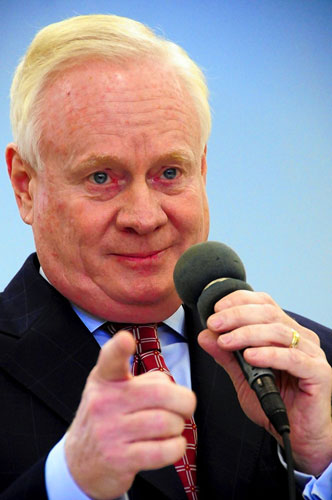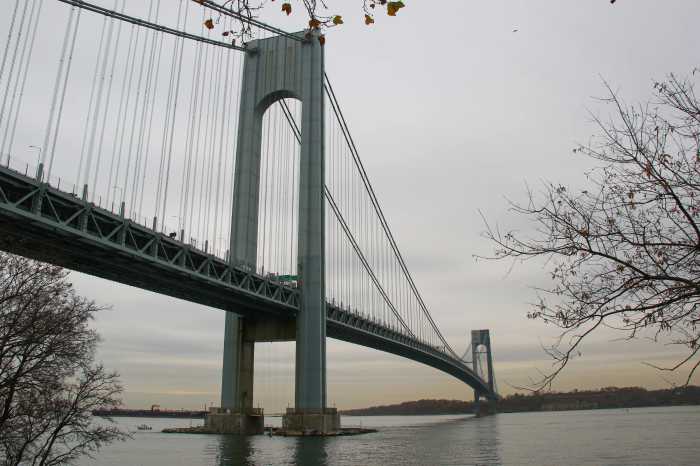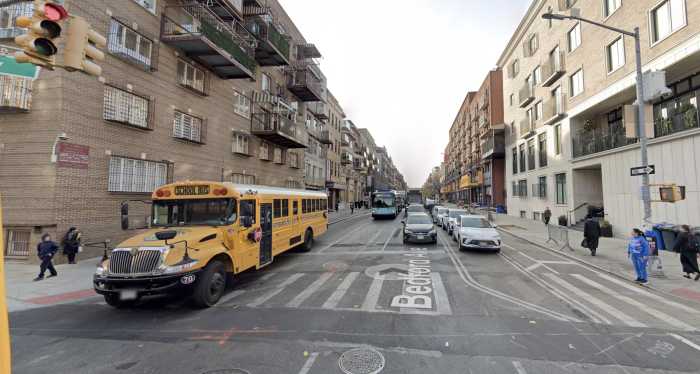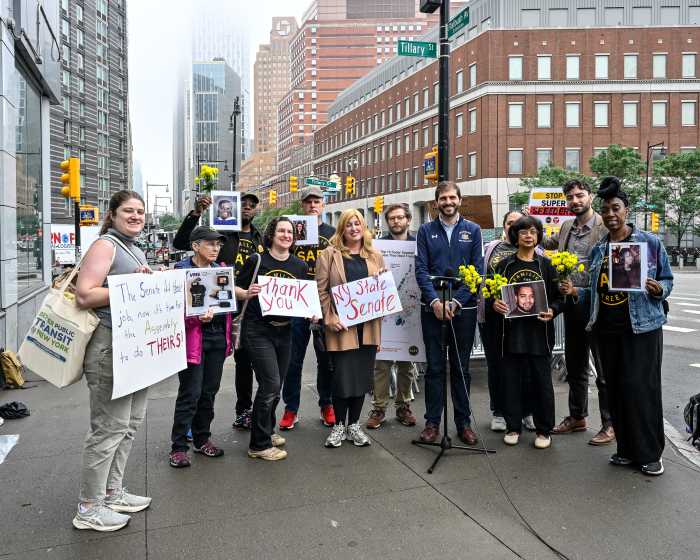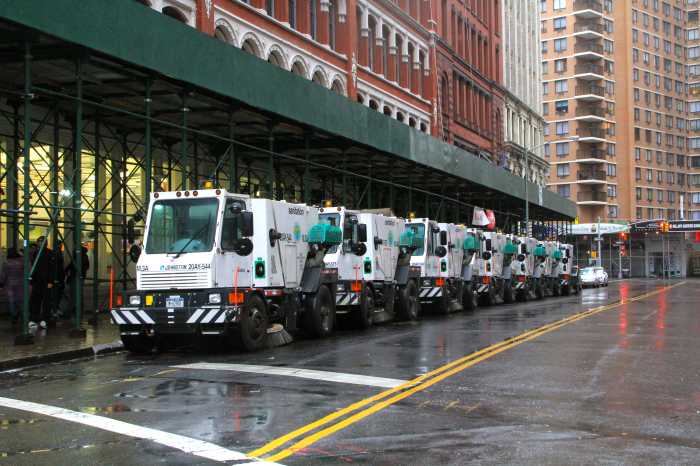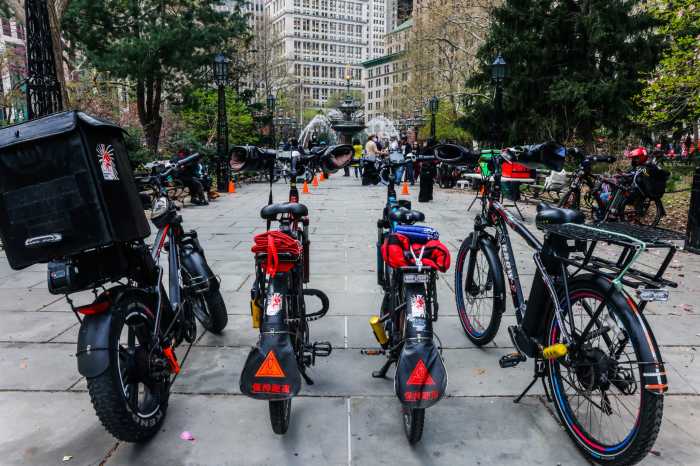It’s a full-speed reversal.
Bay Ridge and Marine Park state Sen. Marty Golden cast aside his support of a bill that would double the number of speed cameras in school zones citywide and is now pushing a bill requiring stop signs or traffic signals near school zones citywide, he announced on June 23. Golden said the new bill is a better solution because it affects more schools than the speed camera bill.
“No schoolchild should ever have to fear danger while walking to school,” Golden wrote on Twitter. “Over the years, many legislators have tried to solve this problem, but their solutions are limited to a small number of schools, protecting a fraction of students.”
The new bill — sponsored by Andrew Lanza (R–Staten Island) and co-sponsored by Golden and Simcha Felder (D–Midwood) — requires the Department of Transportation install the stop signs or traffic lights at intersections in more than 1,000 of the city’s more than 2,300 school zones. It would also double the fine for speeding drivers in school zones, bringing the minimum penalty to $180 and the maximum to at least $1,200, depending on how fast the speeder is going. The legislation would also use the revenue from summonses to pay for installing the new stop signs and lights, extend the speed camera program for six months if the bill is passed before the cameras’ current July 25 expiration date, and require the city install signs notifying drivers where speed cameras are in use. The city does not currently reveal the locations of the 140 speed cameras.
Golden said the new bill was one example of his continued commitment to fight for kids’ safety from speeding drivers.
“This new initiative will actually slow cars down and protect all New York City school children,” he wrote on Twitter. “I will not stop fighting to protect our children from speeding drivers.”
But city records show that Golden has been a reckless and speeding driver, racking up more than $1,100 in fines from 18 parking and driving violations — six of which were for speed camera violations — since May 2016. He paid out more than $870 for 12 of the violations, including all of the speed camera tickets. And he received his latest speed camera ticket just before 11 am on May 10 — four days after his spokesman announced his support for the bill expanding the cameras — when a camera caught his car speeding near Edward Shallow Junior High School at 65th Street and 16th Avenue.
And Golden’s temporary support for the speed cameras last month amounted to a reversal of his years-long opposition to them: in 2013, he blocked legislation that would place up to 40 of the devices around select schools around the city, insisting that there wasn’t enough evidence of speed cameras’ effectiveness, and that the city should instead hire more traffic cops and install more traffic lights, speed bumps, and stop signs near schools.
The Republican-controlled state Senate did not vote on the bill to extend the current speed camera program and more than double the amount of cameras citywide before its session ended on June 20 because Felder did not allow it out of the Cities Committee — which he chairs — for a floor vote. Felder also blocked the bill from reaching Gov. Cuomo’s desk last year.
Councilman Justin Brannan (D–Bay Ridge) condemned Golden’s party for failing to move the speed camera legislation forward, alleging they were endangering children with their inaction.
“If the speed camera program is not renewed and expanded, the lives of New York City school children will be put in jeopardy, and it will be because the Republican-controlled state Senate chose to play politics rather than preserve the lifesaving measure,” Brannan wrote on Twitter.
The new bill is currently in the Senate Rules Committee — led by Majority Leader John Flanagan (R–Long Island) — and will expire in five years and six months if it passed. But it would first need to go to the floor for a vote, which would require Gov. Cuomo or Sen. Flanagan to call a special session of the Senate. If the floor vote passed, Gov. Cuomo could sign it into law, since the Assembly already passed its version of the bill on June 18.
A rep for Felder did not immediately respond to a request for comment by press time.


